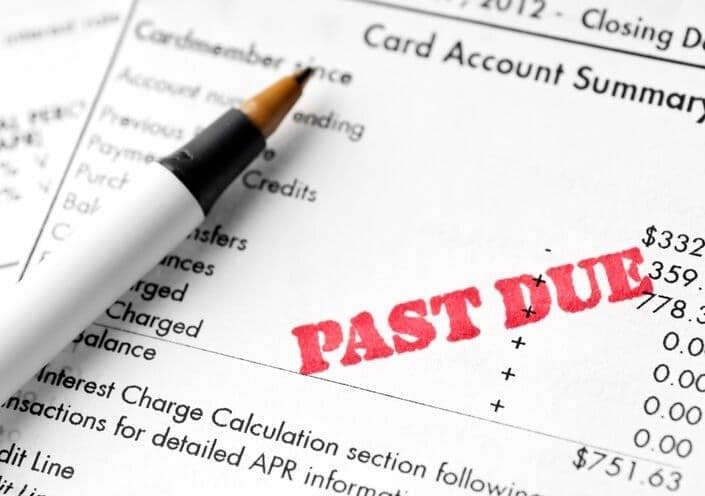Money tips for everyday life
How Long Do Late Payments Stay on a Credit Report?
Life happens, and sometimes you miss a payment or it gets delayed by a day. A single missed payment is common and when corrected quickly, may not have lasting consequences depending on your lender or bank’s policies. However, making on-time payments is important to maintaining a good credit score—your payment history is one of the key factors that determines your score. But what if you’re a day late on a required payment?
Late payments can linger on your credit report for years, potentially weighing down your credit score the entire time. But there's good news: their impact on your overall credit score may lessen over time, and you can take steps which may help improve your credit along the way. Let’s break down what actually happens when a required payment is late—and what you can do about it.

Understanding Late Payments and Credit Reports
Your credit report is a comprehensive summary of your credit activity and history. It acts as a financial report card, detailing your borrowing and repayment history. This includes most types of loan or credit accounts, meaning everything from credit cards and loans to mortgages and even some utility payments or installment payments.One crucial aspect of this report is your repayment history, which shows whether you've made your payments on time or not.
When you miss a payment by 30 days or more, it is then generally reported to the credit bureaus by the lender or other provider as a late payment. Creditors and other providers typically report these late payments to the three major credit bureaus: Equifax, Experian, and TransUnion. These bureaus then incorporate this information into your credit report, which is used to calculate your credit score.
A late payment can significantly lower your credit score, making it harder to obtain new credit, secure favorable interest rates, or even rent an apartment. Lenders view a history of late payments as a sign of increased risk, suggesting you might have difficulty repaying future debts.
Quick FAQs
How late does a payment have to be before it shows up on my credit report?30 days past due, typically. Each lender may have their own policies, so it is important to review your account terms or agreements for this information.
Can I remove a late payment from my credit report?You can request removal through a goodwill letter or dispute, but it’s not guaranteed.
Will one late payment ruin my credit?Not likely, if you otherwise have favorable credit score factors—but, for some borrowers, it can cause a noticeable dip. The key is to catch up quickly and stay current going forward.
What qualifies as a “late payment”?
Most lenders won’t report a missed payment to the credit bureaus until it’s at least 30 days past due. It’s important to understand your individual lender’s policies. So if you're just a few days behind, you might incur a late payment fee, but your credit report likely may not be impacted—yet. Here’s a quick breakdown:
- 1–29 days late: May result in fees but typically not reported to credit bureaus. Check your lender’s policies or your account terms and agreements to understand when a late payment fee can be charged.
- 30+ days late: More likely to be reported and will likely impact your credit score.
The later the payment, the more damaging it can be—especially if it moves into the 60, 90, or 120+ day late territory.
How long do late payments stay on your credit report?
A reported late payment stays on your credit report for seven years from the date of the missed payment. That’s true whether it was a one-time missed payment or part of a longer pattern of missed payments.
But here’s the silver lining: most recent late payments may impact your score most. Over time, especially if you’re building a positive payment history, the impact may become less significant.
Can You Remove a Late Payment from Your Credit Report?
While you can’t typically remove a late payment from a credit report, there are a few steps you can take—though nothing is guaranteed. Here are a few options to consider:
1. Send a Goodwill Letter
If you’ve otherwise been a responsible borrower, you can ask your lender to remove the late payment as a courtesy. Explain the situation and why it won’t happen again.
2. Dispute an Error
Mistakes happen. If the late payment was reported incorrectly, file a dispute with the credit bureaus and provide documentation to back it up. Learn how to fix an error on your credit report and get your credit score back on track.
3. Negotiate with Your Lender
In some cases, lenders might agree to remove a late payment if you settle a balance or agree to new terms. It never hurts to ask, but nothing is guaranteed and everyone’s situation is different.
How to Bounce Back After a Late Payment
Life happens—and one late payment doesn’t have to define your credit journey. Here’s how you can regain momentum:
- Pay on time going forward: One of the most important factors in your credit score is your payment history. Continue making on-time, consistent payments and your credit score can bounce back.
- Set up auto-pay or reminders: Make it easy to stay on top of due dates by taking the manual work out of it. Set up automatic payments and alerts/reminders to help you avoid missing a payment.
- Monitor your credit: Tools like Upgrade’s Credit Health can help you stay on track and spot issues early.
The Bottom Line
A late payment can stay on your credit report for seven years, but the impact may not last forever. The sooner you start building positive credit habits, the faster your credit health may be able to recover—and keep moving toward your goals. If you're working to rebuild your credit, Upgrade’s credit tools can help you understand your score, track your progress, and make confident moves toward better financial health.


